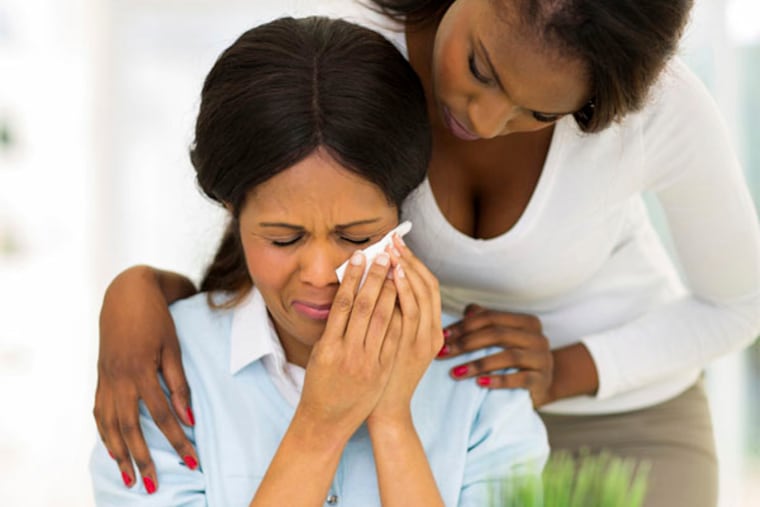Want to help a friend with cancer? Listen to a woman who’s been there.
Creativity, compassion and thoughtfulness -- not advice and horror stories -- will take you far.

Finding out that a family member or friend has cancer is scary. Naturally, you want to help. But what’s the best way to do that?
As a cancer patient myself, I’ve had a front-row seat on the topic. Everyone’s needs are different, but here’s how I approach helping a friend with a tough disease.
Process your own feelings, on your own. If you want to cry, please do that in your own home. Research the diagnosis and the symptoms that your friend may be going through. Learn what the person might be feeling and what might happen. Think about how you would feel if you were diagnosed. Could you imagine what would be going through your mind? If you’re anything like me, you’d want friends who are strong and ready to listen without judging or advising.
Having visitors is wonderful. I felt so good that people cared about me, but sometimes I just felt too weak or sick or crummy to have visitors. Making plans to visit may give the patient something to look forward to. But if your friend isn’t up for visitors that day, don’t be upset; it’s not you.
Listen, don’t advise. Cancer is hard, and if your friend feels like crying to you about it, just be there. It’s OK to say that cancer stinks. It’s OK to say you will be there to help. It’s not OK to tell the patient to be strong. Cancer patients get so much advice; they don’t need more from family and friends.
Talk about things other than cancer. There are so many ways to make a cancer patient feel like the hospital is just a setting. Make a list of jokes to tell, bring a gossip magazine, bring a craft to do together, take pictures and be silly. Bring in coloring books and maybe start a photo album of silly faces. Play dress-up with hats and wigs, do each other’s makeup, bring in different snacks to try to act like you’re a TV chef.
Don’t let uncertainty and awkwardness keep you away. I’d rather know that you care and are thinking about me than wonder why you haven’t reached out. If you aren’t ready to visit, send a text or a note and say that. Don’t assume that the patient knows how you feel. It can be soul crushing to think that your family or friends don’t care that you are fighting for your life.
Suggest ways you can help. The needs of a cancer patient and this person’s family change in unpredictable ways. Things that are no big deal to a healthy person — picking up medication, babysitting, making meals, food shopping, getting the mail, walking the dog, cleaning the house, doing laundry — can be completely daunting when you’re undergoing cancer treatment. It is unbelievable how exhausted cancer can make you feel. Setting up a meal train, helping with doctor appointments, and just being available is so helpful. Your friend may not feel comfortable asking if you can do any of these things, but may accept gratefully if you offer.
No matter how many people you have known who had cancer, please don’t compare their experiences. Every cancer patient has a different treatment plan. Every cancer patient’s story ends differently. Nobody wants to hear that your aunt’s friend had the same cancer as you but she was older and didn’t make it, but that it’s OK because that was years ago and there is more treatment available now. You may have the best intentions, but that kind of story does not help.
Don’t forget the patient’s family. They also need encouragement and support during this time. The best thing you could do is to let them know that you are there – and check in from time to time to make sure they know you really mean it.
Amanda Ferraro is a two-time AML leukemia survivor who lives in New Jersey and blogs at cancerisanasshole.com.
» READ MORE: A cancer survivor's new struggle: holidays without eating